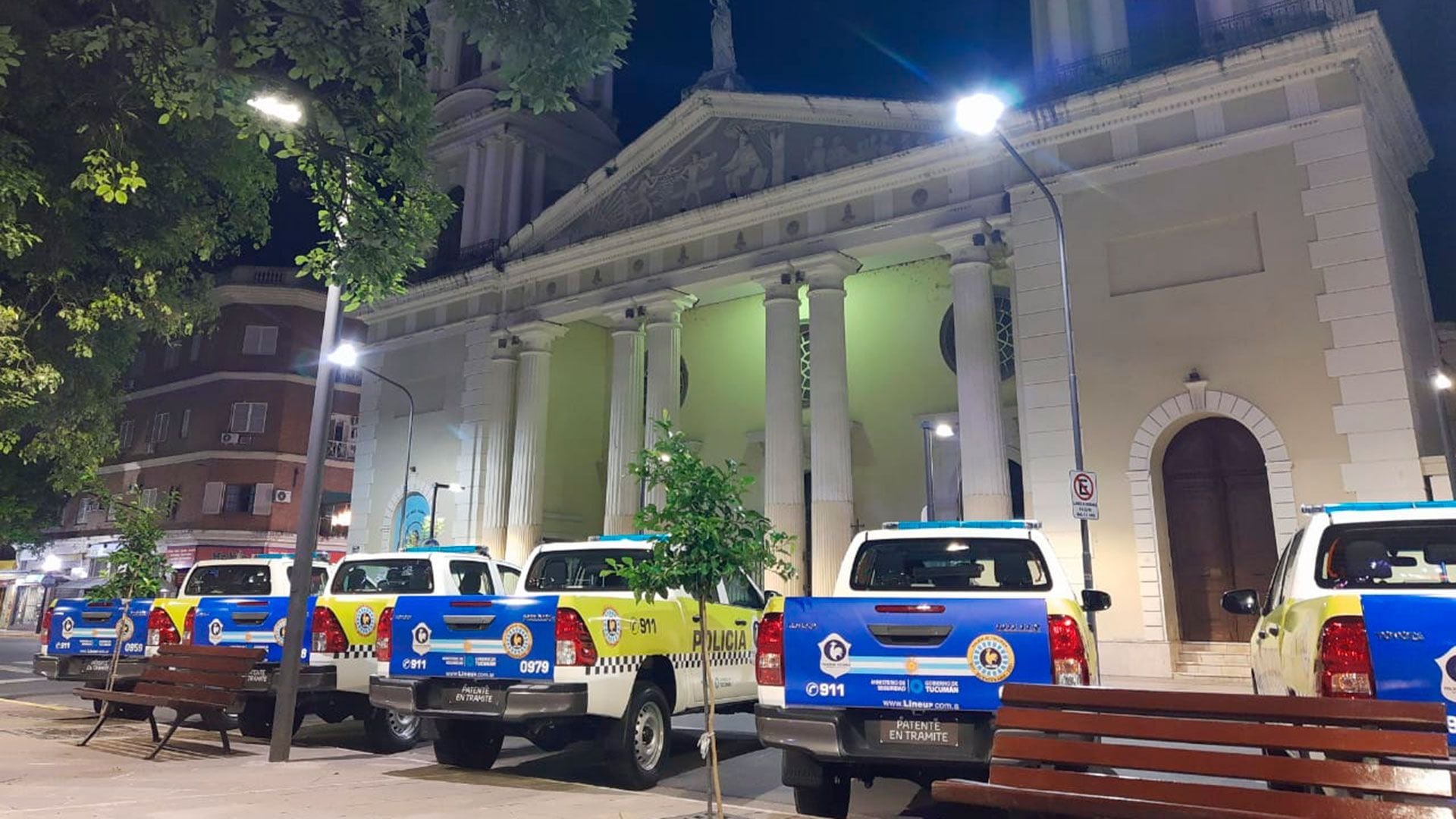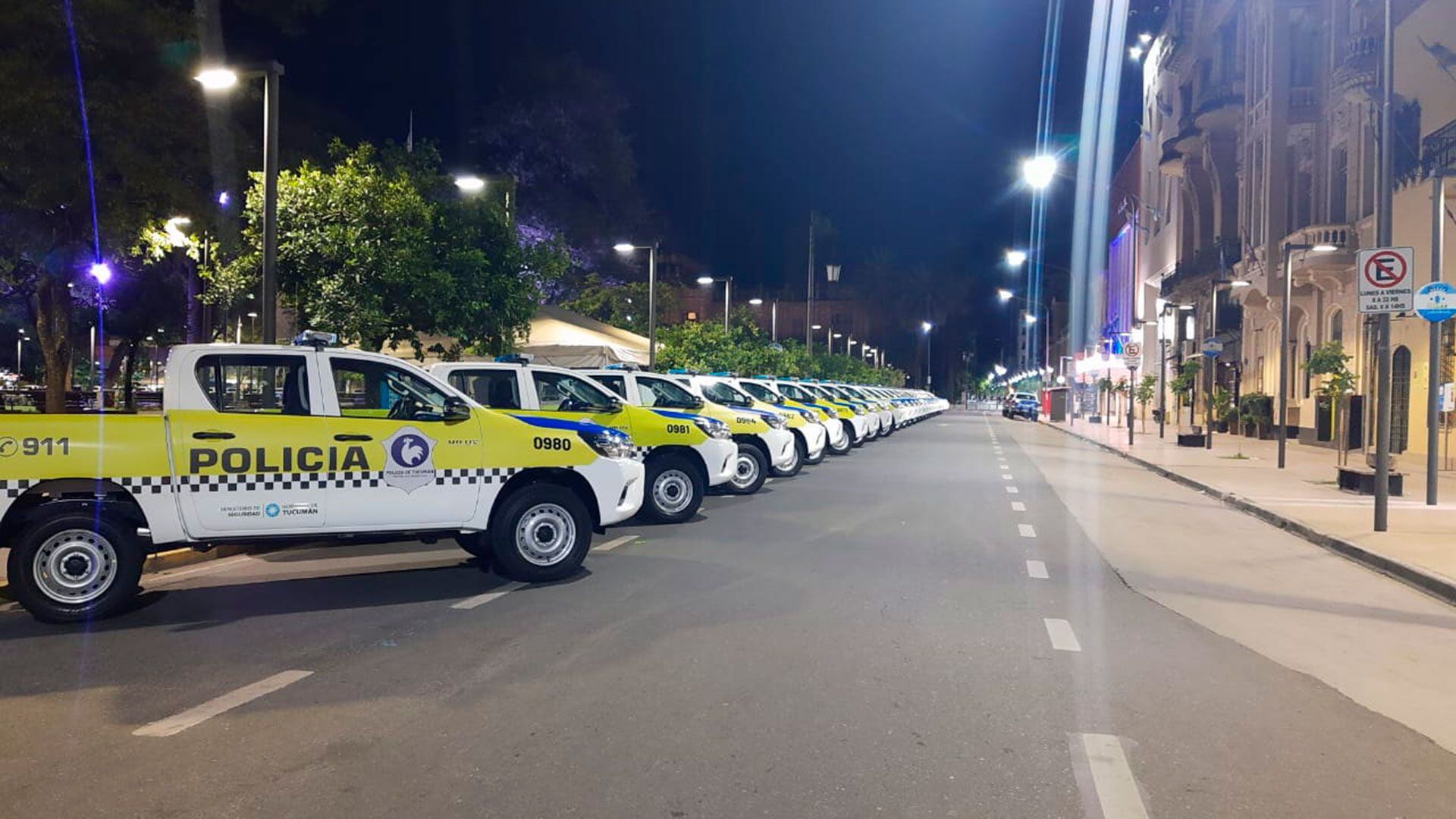History says that the province of Tucumán is related to the declaration of independence. Perón announced economic independence from the historic house and that could inspire President Alberto Fernández to do the same as the head of the political project that led him to Balcarce 50.
The president detained for a few hours in the land of his chief of staff: Juan Manzur was his host to share a political event at the headquarters of the health guild ATSA and the delivery of police mobiles in the heart of San Miguel de Tucumán.
Fernández's presence caused the vehicle closure in the center of Tucumán that began on Thursday night. The fences won the main central arteries and this led to vehicular chaos in the early hours of Friday.
During the early morning the new Japanese vans were parked for the police in a clear domestic message of strengthening security in the province of Manzur. In addition, staff from the Municipality carried out the cleaning of Plaza Independencia. He even painted the benches on 25 de Mayo Street.

“No press. Nothing official”, was the response that Infobae received from the surroundings of the interim governor of Tucumán, Osvaldo Jaldo, regarding the President's evening activity, which included a dinner in the beautiful town of Yerba Buena with typical dishes (Manzur knows how to serve noodles with chicken stew at home) and the TV in the background to watch the Senate vote on the agreement with the IMF. This meal was served in the residence of the Chief of Staff where the Minister of Security, Aníbal Fernández, was also present.
In the privacy of the residence, the President gave prominence to a Manzur who until a few days ago had no agenda of its own. Alberto Fernández's presence in Tucumán lands is more focused on political than institutional issues.
Every time the presidential road gets complicated, Alberto Fernández stays more than a day in the punished north of Argentina. It happened in La Rioja, after the vice-president's brief that shook the world of politics about the epilogue of November last year.

The dinner was the prelude to the event that Fernández will lead today, who will deliver 100 vans to the police and will also sign agreements for the construction of two mayors in Tucumán.
“I see all Peronism united, all my comrades, the councillors, the communal delegates, the militancy, the deputies of the Nation all together and that gives me a lot of joy,” Manzur exclaimed on the ATSA premises so that Fernández would take the longed-for unity of justicialism from the lands of Tucumán, which is not seen in the near Plaza de Mayo.
“It is very important to be able to share with the members of the entire province to receive a person who, by popular will, has the difficult task of leading the destinies of our homeland. He is a person who permanently looks inland, towards the north and mainly towards the province of Tucumán, he is the beloved president Alberto Fernández. Thank you President for all the accompaniment,” Jaldo reinforced in his speech at ATSA.
In this context, Alberto Fernández recalled: “We are Peronists and above all we know what interests we represent. If anyone is in doubt that he will take them out,” he said during the event at the ATSA union. He added: “I'm not going to get off the boat they sent me to drive; I'm going to drive it with all the strength I have.”
Will the head of state be encouraged to cut the umbilical cord with Cristina Kirchner? At least a group of provincial leaders gave the first signs of independence when they asked their legislators to vote in favor of the agreement with the IMF, after Máximo Kirchner opened up the debate.
Until December 10, 2023, Alberto Fernández and Cristina Kirchner must live together beyond any political separation. But to reach those days, power will be played within the ruling party with Alberto Fernández's idea of seeking re-election. And what will CFK do? The albertism that crosses the northern routes (Salta and Tucumán) does not speak of it, it only speaks of Peronism.
Keep reading:
Últimas Noticias
Debanhi Escobar: they secured the motel where she was found lifeless in a cistern
Members of the Specialized Prosecutor's Office in Nuevo León secured the Nueva Castilla Motel as part of the investigations into the case

The oldest person in the world died at the age of 119
Kane Tanaka lived in Japan. She was born six months earlier than George Orwell, the same year that the Wright brothers first flew, and Marie Curie became the first woman to win a Nobel Prize

Macabre find in CDMX: they left a body bagged and tied in a taxi
The body was left in the back seats of the car. It was covered with black bags and tied with industrial tape
The eagles of America will face Manchester City in a duel of legends. Here are the details
The top Mexican football champion will play a match with Pep Guardiola's squad in the Lone Star Cup

Why is it good to bring dogs out to know the world when they are puppies
A so-called protection against the spread of diseases threatens the integral development of dogs



